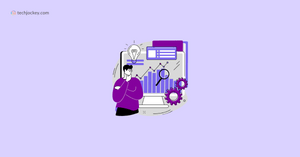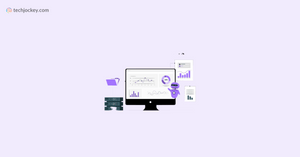Hospital Management Software: An Overview
The hospital management software is an application that helps doctors and healthcare professionals to streamline all the processes involved in a hospital. A hospital information system can be an offline or web-based solution that integrates all activities related to patients, doctors, administration, and other medical professionals and facilities.
It ensures a quick diagnosis of the patients and timely care. The hospital information system also helps with activities related to appointment booking, Inventory Management, revenue management, and business intelligence.
Most Common Features of Hospital Management Software
- Patient Management: This software is used to control patient flow. Check data related to the patient’s health, view the details about their treatment, and maintain their health records electronically.
- Appointment Management: There is a dedicated feature for managing all appointments. You can see the availability of medical professionals and schedule appointments accordingly. This appointment scheduling software module helps hassle-free meetings to the doctors.
- Facility management: Track room availability and update the status with the hospital information system.
- Inventory management: A substantial Inventory Management Software in place allows the staff to concentrate more on the patients on last-minute stock replenishment.
- Staff Management: One can manage the entire human resource administration like updating job descriptions and tracking recruiting processes.
- Account management: Store all the details regarding patient payments and financial records with the hospital management system.
- Insurance services integration: One can track and store all insurance-related details, policy numbers, and information about the insurance company.
- Medicine management: This hospital management system keeps a record of all the medicines used by patients.
- Lab test management: Lab reports include all the data related to a patient’s lab test. It can be viewed by staff as well as medical professionals.
- Reporting: Analyze, collect and view the performance of data in a comprehensive program. Define problem aspects and find the solution with hospital information system.
- Helpdesk Management: Hospital help desk software features that specialize in handling patient concerns and providing real-time solutions.
- In-Patient Management: Activities of patients who are admitted to the hospital can be tracked with this hospital information system.
- OT Management: Using HMS software, you can manage OT timings on a priority basis.
- Pharmacy Information system: Get information about which medicine is available in the pharmacy and which ones are due with the help of a hospital information system.
- Nursing Care: Give patients adequate nursing by assigning help to them based on their healthcare needs.
- Ward Management: Details about wards like the number of wards available, occupancy, and everything can be managed and edited with this software.
Importance Of Hospital Management System
- Improved Efficiency: Automation helps in improving all the existing processes. As every stakeholder like medical professionals, patients, and hospital staff can interact online anywhere anytime, all the existing processes become simpler.
- Easy Access to Information: All medical records are digital and hence accessible to everyone at all times. This decreases dependency and increases efficiency.
- Staff Interaction: Staff members can interact with one another all the time. They can also send text messages and voice messages. This helps in improving teamwork and coordination.
- Cost-Effective Hospital Management: An integrated hospital management software initially seems to have cost heavy, but in the long run, it is the most cost-effective option one can find in running a hospital.
- Reduced Scope of Error: Since the number of paperwork decreases, the scope of making errors also reduces. All thanks to the automation that a hospital information system provides.
- Increased Data Security: The data of the patients is highly critical. Hence, HMS software provides an increased level of security. It also has a multilevel authentication system to keep the intruders at bay.
- Improved Patient Self-Service: Patients also have their own accounts in a hospital management system. Patients can make an online reservation, and receive test results and a consultant.
- Better Revenue Management: With reporting and analytics features, you can manage you’re your revenue and cash flow convincingly.
- Improved Facility Management: Authorities can manage the resources easily, analyze the work done by the staff, optimize the existing supply chain and reduce equipment downtime.
- Faster Claim Settlement: The hospital management system provides integrated claims management features to make the process of settlement faster for your patients.
- Better Patient Experience: HMS Software is a patient-oriented tool. And by using this software, doctors and medical professionals can pay more attention to them. The patients can also access all information related to them online.
What are the different types of HMSs?
There are two main types of HMSs: cloud-based and on-premises.
- Cloud-based HMSs: Cloud-based HMSs are hosted by a third-party vendor and can be accessed from anywhere with an internet connection. This can make it easier for hospitals to implement and maintain an HMS.
- On-premises HMSs: On-premises HMSs are installed on the hospital's own servers. This can give hospitals more control over their data, but it can also be more expensive and time-consuming to implement and maintain.
Modules of Hospital Management Software
- Doctor Availability: This module lists the name of the doctors, their emergency contact numbers, and availability. Doctors can edit their schedules and list medicines.
- Patient Information: A hospital information system is used to make communication between doctors and patients easier. Patients can even share and store their pictures as proof for further treatment.
- Bed & Ward Occupancy: The number of beds and rooms that are available is tracked with this hospital information system. Details regarding operation theatres can also be tracked.
- Staff Management: Shifts of hospital admin staff and their attendance can be managed with the help of a hospital software system.
- Hospital Supplies: Track supplies like medication, instrument, lab supplies, staff supplies, etc. with HMS software.
- Patient Billing: Automate all the processes related to expenses and calculate the complete billing process with the hospital management system as it saves both cost and time.
- Insurance: The data related to insurance can be stored and insurance claims can be tracked with the hospital information system.
- Laboratory: When a doctor asks for a certain set of tests, it is directly updated in the laboratory module of the software. Blood bank details are also included in this software.
- Employees: All the staff including medical professionals can be contacted anytime anywhere as their name, contact number, and availability is updated automatically with this software.
- Statistical Reports: This module lets the management gain insights about the performance of the hospital and its staff. This helps in summarizing all the expenses and examining the expenditure and revenue thoroughly.
- Telehealthcare: Hospital information system uses telecommunication and virtual technologies to provide timely health care services to people in far-flung areas.
- Patient Information Management: Manage information online about patients, their diagnosis and treatment history.
- Electronic Medical Records: Maintain the record of patients electronically with this software.
- Administration Controls: Admin can control all the information and also give access to the information to stakeholders.
- Day Care Management: The hospital management system also keeps a track of which medical professional is assigned for daycare and when.
- Surgery Planning: With HMS software, admins can also schedule surgeries based on which doctor is present in the hospital at the time of the surgery.
- Accident & Emergency Care: Track and record all the information about every treatment associated with accidents and emergency care.
- Blood bank Management: Manage blood banks and track the blood groups available in the hospital inventory.
- Patient Self-Care: Records of patient self-care requirements based on their treatment history are maintained with the hospital information system.
Functions of Hospital Management Software That Are Revolutionizing the Healthcare
Hospital management systems are used extensively these days because they show a very promising trend in healthcare technology. HMS software provides a huge help in communicating with different stakeholders, executing multiple operational tasks, and cutting down the overall costs. As healthcare tech is evolving by the day, a hospital management system can now help implement smart medical devices to revolutionize this industry.
- Acute Patient Care: Authorities can gain real-time information about patients. This functionality helps the staff to understand the kind of care and treatment the patients need.
- Ambulatory Care: Ambulatory care is provided to patients who are present outside the hospital. With a hospital information system, doctors can diagnose, observe, and consult these patients easily.
- Information Management: The hospital management system keeps track of the number of medical as well as non-medical professionals present in the hospital. All the information is readily available at the fingertips of authorities.
- Patient Medical History Tracking: With hospital software, one can view the treatment that is provided to the patient. This includes all the medications taken and tests done by the patient.
- Billing & Invoicing: Check bills generated and payments submitted by the patients online. Get the outstanding amount at any given point in time.
- Electronic Medical Reports: The HMS system helps in preparing as well as printing medical reports. This makes it convenient to get information about the patients.
- Appointment Management: One can also check the number of appointments in a day, and the schedule of medical professionals.
Things To Be Considered Before Buying Hospital Software
Which processes need to be automated?
It depends on whether you want to automate medical documentation, supply of drugs, medication, or emergency room operations. Accordingly, you can opt for the most customized hospital management system.
What are the customization requirements?
Check if you want standard modules or specific features, depending upon the size of your healthcare centres and your patient requirements.
How easily the software can be integrated?
The hospital management tool is of no use if you cannot integrate it with your existing tools and software applications. A software that can work with all other applications is an ideal one to choose from.
Will there be any training & support?
Always opt for the hospital management system vendor who provides training & support to use the software effectively.
Are you getting what you are paying for?
There is a lot of software available in the market, but you should choose the one according to your budget. Going out of the budget and then regretting would be of no use.




































